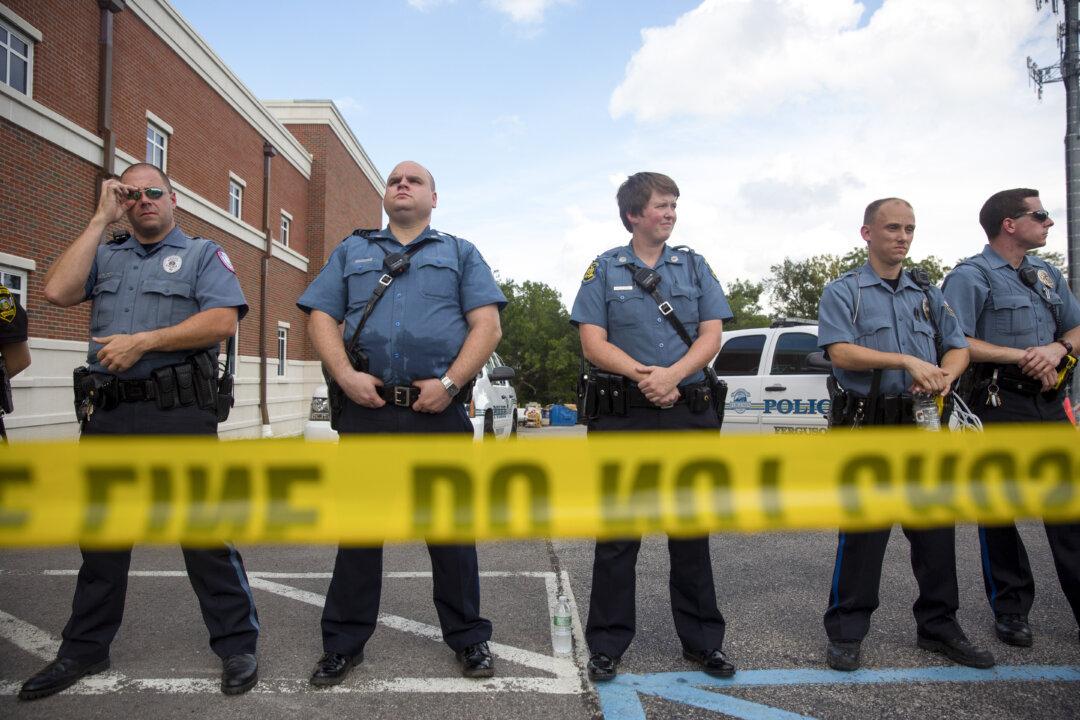Each month, Ferguson municipal court passes on to the city’s police department supervisors a list of officer names, their squads, and the number of tickets they issued. Supervisors then post the list inside their police station, as a way to motivate their patrol officers into writing up more citations.
One patrol supervisor criticized his sergeant because the squad had issued just 25 tickets in a month. One of the officers had spent three days just on traffic stops, and issued 11 tickets to six people. Still, it wasn’t enough. The city needed more money.
Ferguson’s finance director wrote to Police Chief Thomas Jackson in March 2010, “Unless ticket writing ramps up significantly before the end of the year, it will be hard to significantly raise collections next year.”
That year, the court collected $1.3 million in fines and fees, a sizable 12 percent of the whole city’s total revenues. But within five years, the police department would ramp up its ticket-writing to bring their fines collection in fiscal year 2015 to more than double the 2010 number—over $3 million.
In a scathing 102-page report released by the Department of Justice Wednesday, federal authorities detailed a history of policies in the Ferguson Police Department (FPD) that stressed revenue generation over actual crime-fighting—policies that overwhelmingly targeted the city’s black residents.
Racial Disparities
Black residents make up 67 percent of the city’s population, but were 93 percent of the people arrested in Ferguson. A total of 85 percent of the people subject to a traffic stop were black drivers, though a search of their vehicles was 26 percent less likely to produce contraband than when white drivers were searched.
In most of these stops, officers did not have reasonable suspicion that any criminal activity was going on—violating their Fourth Amendment right from unreasonable searches and seizures. The underlying reason for the stops was an aggressive effort to ticket residents and bring in revenue for the city.
“Partly as a consequence of city and FPD priorities, many officers appear to see some residents, especially those who live in Ferguson’s predominantly African-American neighborhoods, less as constituents to be protected than as potential offenders and sources of revenue,” the report said.
The report was the result of a six-month-long investigation, prompted by the death of Michael Brown, a black teenager who was shot and killed by Officer Darren Wilson last August. The Justice Department opened up an investigation into both Brown’s case and the Ferguson Police Department at large.
U.S. Attorney General Eric Holder announced Wednesday that the Justice Department would not bring federal civil rights charges against Officer Wilson, but he said the department’s probe of the Ferguson police revealed a culture of “implicit and explicit racial bias” that discriminated against the city’s black residents and routinely violated their constitutional rights. This in turn deepened residents’ distrust of police officers and contributed to the racial tensions that reached a boiling point following Brown’s death.





